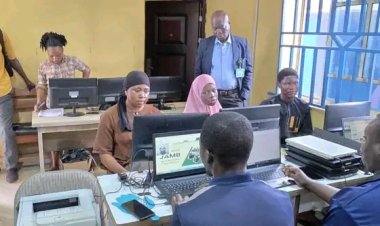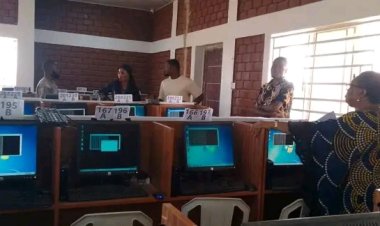The Complex Journey of Certifying Textbooks in Nigerian Education

In Nigeria, the process of certifying textbooks for use in schools is a labyrinthine journey fraught with challenges and obstacles. For many authors and publishers, gaining certification from the Nigerian Educational Research and Development Council (NERDC) is a costly and time-consuming endeavor. This process, intended to ensure the quality and alignment of educational materials with national curricula, often leaves authors and small publishers frustrated and disheartened.
Joseph Frank, a talented author with a passion for mathematics education, found himself facing the daunting task of getting his 200-page textbook certified by the NERDC. To obtain this certification, he was required to pay a hefty fee of N60,000 for the certification exercise. The NERDC charges N300 per page for each textbook submitted, with the additional requirement of providing four copies of the book in a ready-to-print format. However, the challenges do not end with the financial burden. Authors like Frank have little control over the timeline of the assessment process. The NERDC waits until it has amassed a sufficient number of materials before calling in experts to assess the submissions. This delay can stretch for months or even years, during which time the content in the textbooks may become outdated.
Once a textbook is certified by the NERDC, it still faces the hurdle of state-level approvals. Nigeria has 36 states, each with its own Ministry of Education and Curriculum Service Department. Authors seeking approval for use at the state level must navigate a complex bureaucracy, further adding to the time and cost involved in the process. Some new and young authors have raised concerns of partiality in the approval of textbooks, alleging that established authors and big publishers receive preferential treatment. However, a staff member at the Curriculum Service Department of the Lagos State Ministry of Education refuted these claims, stating that the approval process is based on strict criteria and involves independent reviewers who do not know each other. The goal is to ensure impartiality and the quality of educational materials.
Frustrated by the costs and bureaucratic hurdles, some authors resort to self-publishing and taking unapproved routes to get their textbooks into schools. This has led to the proliferation of unapproved materials in the education system. According to Dare Oluwatuyi, the President of the Booksellers Association of Nigeria, corruption is a significant factor in the circulation of unapproved textbooks. Some books lack ISBN numbers and have not gone through the proper certification procedures. Unscrupulous individuals assemble pieces of certified books without considering the curriculum's needs, leading to students studying incorrect or irrelevant content.
The issue of unapproved textbooks finding their way into schools is a matter of grave concern. Nigeria reportedly loses over N30 billion annually to book piracy. To combat this menace, stakeholders in the education and publishing industry suggest strengthening the Nigerian Copyright Commission (NCC) and collaborating with other stakeholders to curtail piracy effectively. The journey to certify textbooks for use in Nigerian schools is a convoluted and costly process that poses significant challenges to authors, publishers, and the education system. While the goal of ensuring the quality of educational materials is commendable, it is imperative to streamline and simplify the certification process to encourage creativity, innovation, and timely access to up-to-date educational resources. Additionally, addressing corruption and piracy in the distribution of educational materials is essential to safeguard the quality of education in Nigeria.

 peace francis 1
peace francis 1 



